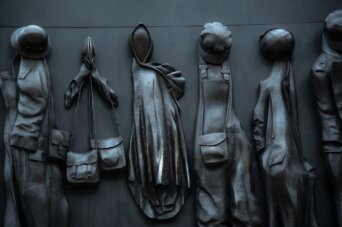- About
- Topics
- Picks
- Audio
- Story
- In-Depth
- Opinion
- News
- Donate
- Signup for our newsletterOur Editors' Best Picks.Send
Read, Debate: Engage.
| topic: | Women's rights |
|---|---|
| located: | Bosnia and Herzegovina |
| editor: | Katarina Panić |
"People are worried today, just as they were 30 years ago,” an NGO activist, Danka Zelić, an NGO activist, told FairPlanet. “We were afraid both during the war and after the war, and it took us time to get courage and strength. Then we showed in our local communities that we can do many useful things for society while campaigning for peace."
Zelić is one of twenty women in Bosnia and Herzegovina participating in the Peace with Women's Face exhibition this week in Prijedor. Their photographs and life stories aim to end the dominance of both male and ethnocentric narratives of war and peace. With the support of the German Forum Ziviler Friedensdienst, thirteen civil society organisations from all over the country gathered to expose a female perspective of survival of war and of overcoming its consequences.
"This is how we responded to typical male behaviour during and after the war because we did have our role, but it often is not recognised nor valued. The war was not single-gendered; women were involved on many more levels than men and suffered a lot," Mira Velušić, from Tuzla-base NGO Horizonti, recounted to FairPlanet.
Social psychologist Srđan Puhalo informs that women's perception of the war is entirely different from that of men's. "During the war, women are lonely in keeping their families and homes and are forced to do everything they usually share with men. The society primarily takes care of the army, while civilians are on their own," he explained.
Gordana Vidović, from Modriča-based NGO Budućnost, recalls she became an activist in 1996, right after the war in Bosnia ended. "The nationalists are frightening us again these days. I believe women are powerful enough to prevent these new conflicts and not allow their sons, brothers, fathers and husbands to go to war for someone else's interests" she stated.
Nataša Kurtuma, from Bijeljina-based Foundation Lara, announced the new activity within the Peace with Women's Face initiative called 100 Women: one-hundred streets named after women. It will be presented tomorrow in the capital of Sarajevo.
"The research showed there are local communities in this country that do not have a single street named after a woman or female experience. Therefore, we made a list of respectable women and we will offer it to municipalities. Our goal is to have at least 40 percent of streets named after them," she exclaimed while opening the exhibition.

